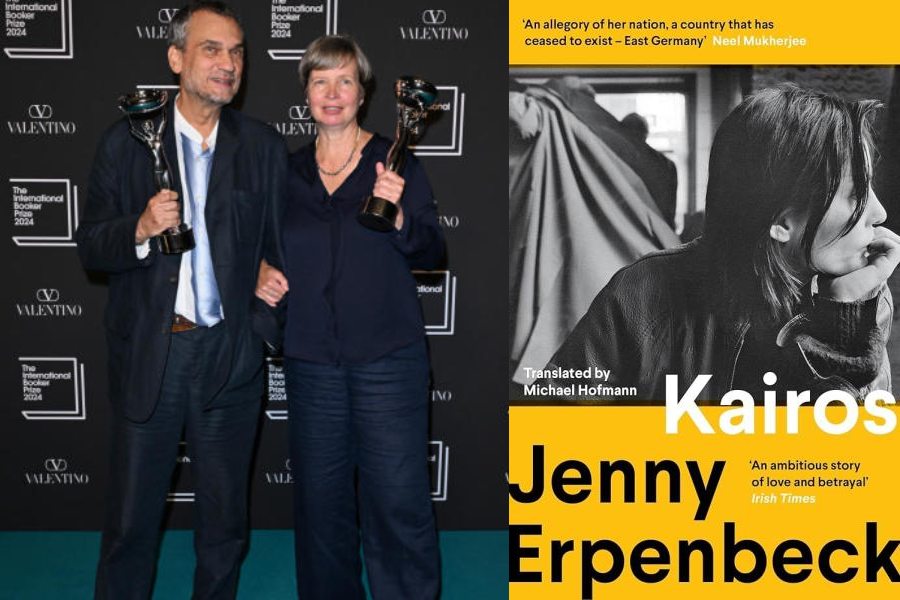The suspense over the winner of the International Booker Prize, building up since March 11 when the longlist was announced, was finally lifted when Jenny Erpenbeck along with translator Michael Hofmann lifted the trophy at London’s Tate Modern on the night of May 21. With the big win, Erpenbeck, an opera director, playwright and award-winning novelist, who was also longlisted for the prize in 2018, becomes the first German writer to win the International Booker Prize. It also makes Michael Hofmann the first male translator to win the prize and share a prize money of £50,000.
Set in the tumultuous decade of the 1980s in East Berlin, Kairos, follows a love affair between a 20-year-old woman and a man in his fifties. Summing up her fiction novel in a video interview, with the Booker Prize team a week before the announcement, Erpenbeck said: “Since the book is about time and hope and failing, I thought it might be interesting to have one rather odd character. So Hans is about 50 and then I have this young woman, Katharina, who is 19 when she meets him for the first time. He is someone who is born in the Nazi era and was brought up with the ideas of being the chosen one and later he turns to socialist ideas and he is someone who looks at the past and is someone who tries to preserve things, while Katharina, who is politically seen...as she is a blank page. Hers is the future. So to put them together in a love story I cover 80 years of history.”
Hofmann, who partnered with Erpenbeck to translate the intimate and deeply political fiction loved the copious amount of ‘sentence fragment’ and ‘run-on sentences’ used by Erpenbeck.
The winner was announced by Eleanor Wachtel, chair of the 2024 judges, and the trophy was handed over by last year’s winners author Georgi Gospodinov and translator Angela Rodel of Time Shelter. Commenting on Erpenbeck, Wachtel, jury chair, said in a statement: “What makes Kairos so unusual is that it is both beautiful and uncomfortable, personal and political. Erpenbeck invites you to make the connection between these generation-defining political developments and a devastating, even brutal love affair, questioning the nature of destiny and agency. Like the GDR (German Democratic Republic, or East Germany), it starts with optimism and trust, then unravels.” Praising Hofmann, Wachtel added: “Michael Hofmann’s translation captures the eloquence and eccentricities of Erpenbeck’s writing, the rhythm of its run-on sentences, the expanse of her emotional vocabulary.”
Erpenbeck, whose mother was a translator of literature from Arabic to German, is a trained bookbinder and worked as a theatre props manager before studying musical theatre direction and enjoying a career as an opera director in the late 1990s. Her literary journey started off with the novella Geschichte com alten Kind in 1999. Having been translated into 30 languages her other notable literary works include The Old Child, The Book of Words, Visitation, The End of Days, Go, Went, Gone and more.
